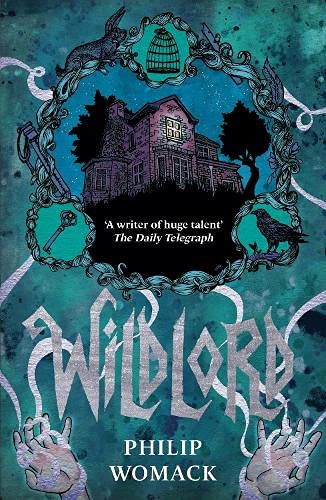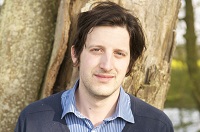
A Q&A Interview with Philip Womack
 Philip Womack is the author of several critically acclaimed novels for children including The Liberators; the Darkening Path trilogy; The Double Axe, a reimagining of the Minotaur myth. The Arrow of Apollo, also set in the ancient world, was published in May 2020. His new book, Wildlord, is set in the Suffolk countryside and is full of old magic.
Philip Womack is the author of several critically acclaimed novels for children including The Liberators; the Darkening Path trilogy; The Double Axe, a reimagining of the Minotaur myth. The Arrow of Apollo, also set in the ancient world, was published in May 2020. His new book, Wildlord, is set in the Suffolk countryside and is full of old magic.
Your last books have been sent in the classical world. What made you decide to write Wildlord, with its very different setting and background?
There are a couple of reasons: the practical answer to that is simply that as I’d done The Arrow of Apollo with Unbound, which was set in the ancient world, I wasn’t very keen to undergo crowdfunding again for a sequel – it’s very time-consuming, and you spend more time doing the funding than you do on writing. I’ve written books set in modern times before – my first novel, The Other Book, was set in a version of my prep school, and The Liberators was very much a London-based book. I spend a lot of time in Suffolk, and the landscape there is very particular. There are lots of houses with moats, and plenty of burial mounds. When you get an idea like that, it’s hard to get rid of it without writing it out, so I just went ahead with it.
Was there a particular inspiration for the book?
I suppose really it’s the combination of burial mounds and moats – I started wondering why so many houses in Suffolk have moats, even quite ordinary farmhouses. And of course, my answer to that was to stop the Good Folk getting in. And the conflict between wild magic and sorcery is a very interesting one, so I started to wonder about how a magician might try to capture the essence of an immortal in order to further his own life and powers.
Do you remember first learning about the Good Folk? What is it about them that caught your imagination?
I certainly remember believing in fairies. But the Good Folk, I think, I first really learned about through Rudyard Kipling’s Puck of Pook’s Hill, which is set in Sussex, where I grew up. I remember being absolutely enchanted by the history and the magic in those tales – and desperately sad that Dan and Una forget the stories once they’ve seen them (but we, the readers, don’t.) Imagine meeting Dan and Una and knowing what they don’t, I used to think. What’s so fascinating about the Good Folk is that they are parallel to us – they live alongside us, they’re more powerful than us; they represent some of our more unpleasant features but also some of our more beautiful ones. And it’s just such an engaging idea, that there’s another world alongside ours, into which sometimes people stray.
How did you approach the challenges of writing time travel, which features in this book?
The honest answer to that would be that I didn’t really think about them… It might sound strange to say it, but the book flowed very nicely as a whole as I wrote it, and I never had to stop and think about the mechanics of it. Those who do time travel in the book can’t change anything in the past – or at least, that’s what Jack, the magician, says. The Samdhya – the supernatural folk – know more about time than us humans. Zita has a very special relationship with time, and her power stops it slightly.
 It’s very much a book about family – one lost and a new one made. Is that theme one you find yourself returning to?
It’s very much a book about family – one lost and a new one made. Is that theme one you find yourself returning to?
I think in a sense all children’s books have to be about family, simply because that’s the unit that most children find themselves in. Many children’s books are about returning to your family, others are about embarking outwards and shifting away from it. Thematically I find genealogies and genetics deeply engrossing – I wrote out quite a complex family tree for the Swintons, which is Tom’s family, from the 16th century onwards. Part of it developed from my own research into the Womacks – there’s a lot of them hanging about in Suffolk in the 16th century. To me it’s the most captivating idea – that my grandfather had memories of his own grandfather, and he of his own, and suddenly you’re back in the 18th century. You know that old song – I danced with a man who danced with a girl who danced with the Prince of Wales? Something like that. We’re only a handful of people away from Queen Elizabeth I – I find that so absolutely astonishing and I wish more people wrote down their memories of what their parents and grandparents thought and did and remembered.
Might there be a return for Tom, Zita and Kit?
I should hope so – there’s certainly plenty of room for them to explore and develop further within the framework both of Mundham Farm and within their relationships with the Samdhya. We shall see what we shall see…
Wildlord is published by Little Island, 978-1912417971, £7.99pbk




 Charlotte Knee
Charlotte Knee 